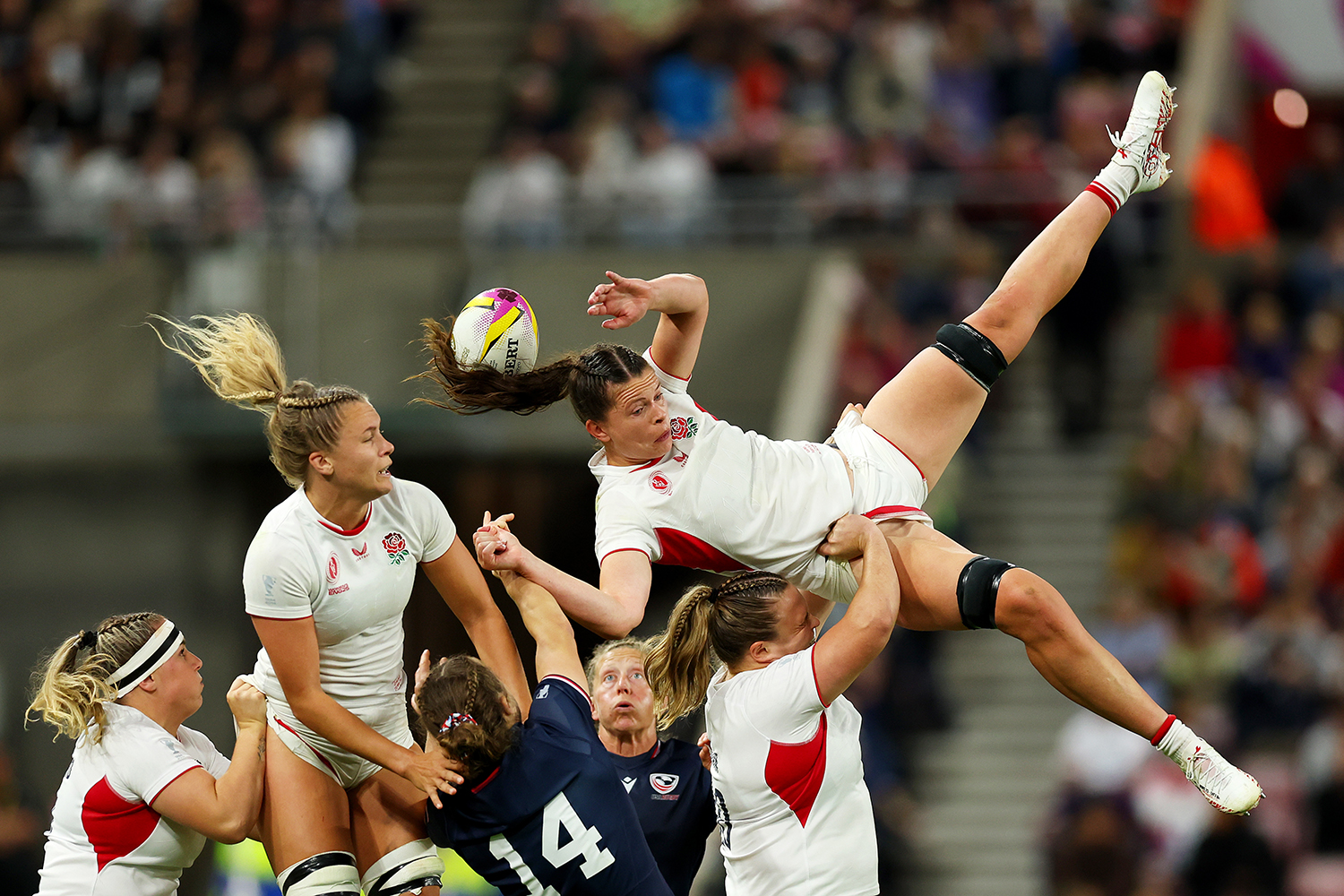This week, the Rugby World Cup, a celebration of women competing at the top level of a physically demanding sport, began. With it, we can praise all the excellent physical performances we will witness, but as the science and medical manager for World Rugby, I think it’s important to also highlight the women’s health issues that the tournament will intersect with.
I’ll start with one that is still seen as a taboo topic: pelvic floor health. The truth is, we don’t actually know how big of an issue pelvic floor health is in rugby. Like many things that have sex-specific factors, we don’t know how much of a role they play in terms of performance, but what we do know is that the pelvic floor is sensitive to elements, so we can assume that playing a high-contact sport like rugby will have an effect on the pelvic floor.
The consequences can be urinary incontinence, which some women’s rugby players have reported. If you watch a women’s rugby match, it’s not just the tackles, but the running and jumping too which can all really impact the pelvic floor.
So what we can do at World Rugby is issue guidance to all players about strengthening the pelvic floor, because while we don’t know how big an issue it is, there is absolutely no harm in strengthening it. It’s like any other muscle: rugby players should train them to build overall strength.
With the Rugby World Cup under way, there have been important conversations with players, unions and doctors to truly understand the issue. Because players can find the symptoms embarrassing to talk about, we think urinary incontinence might be underreported, so a huge effort is under way to break the taboo. We have made particular efforts with male doctors and coaches to help them understand the issue and hopefully feel comfortable talking about it with players.
I want to make it clear that there is nothing embarrassing about having a weaker pelvic floor, and some readers might empathise with the players who are playing in the Rugby World Cup if they have suffered similar issues. What I would say is that strengthening the pelvic floor is important for all of us, not just rugby players, and the exercises will help with that.
A happy problem we have to face at World Rugby is the number of returning mothers we have now at the elite level of the game. Abbie Ward, the England forward, made a documentary about returning to playing international rugby after giving birth, and there are a number of other mums playing across the Rugby World Cup. Mothers can be particularly prone to a weaker pelvic floor, and England Rugby are actually publishing post-partum guidance which will help us help future mothers too.
For this World Cup, all medical staff and match officials have been briefed about how to react if a player has urinary incontinence on the pitch. It will be treated the same way as a knee or head injury. The player will leave the field and be replaced by a substitute while they sort themselves out. The issue should be addressed with as much respect as possible.
You can find out more about pelvic floor health, especially how we at World Rugby will be helping players manage their symptoms, here.
Photograph by Mike Egerton/PA Wire
Newsletters
Choose the newsletters you want to receive
View more
For information about how The Observer protects your data, read our Privacy Policy


